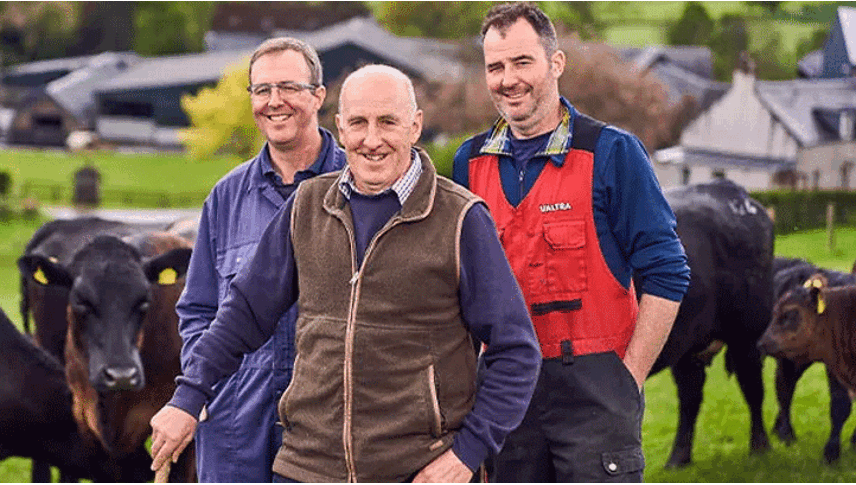Register for free and continue reading
Join our growing army of changemakers and get unlimited access to our premium content

Image: M&S
Aldi, Lidl, the Co-op, Morrisons, Sainsbury’s, Tesco, Waitrose and Marks & Spencer (M&S) have signed on to the new ‘Retailer Net-Zero Collaborative Action Plan’ ahead of its launch today (28 March). Several of these retailers have already pledged to halve the climate impact of shopping baskets this decade.
The aim of the new plan, facilitated by NGOs WRAP and WWF, is to unify approaches and methods used to measure the carbon footprint of food and drinks. At the moment, different supermarkets are taking different approaches to emissions accounting, despite often using the same suppliers. This places the burden on producers and suppliers, who often do not have the same resources at their disposal as grocery giants.
Under the plan, the supermarkets will work with 17 key suppliers this year to trial WRAP’s new measurement and protocols for measuring Scope 3 (indirect) emissions. The protocols will then be rolled out across other suppliers.
The plan will also enable retailers to “identify and address challenges that are too big or complex” to be successfully tackled by any one business. From 2024, work will begin to identify “high-impact areas” such as food waste in certain categories or particularly carbon-intensive ingredients. The plan will assess action currently underway by retailers and identify gaps to be addressed.
“We need to transform our food and drink system if we are to stand any chance of achieving our net zero goals and mitigate the worst impacts of the climate crisis,” said WRAP’s chief executive Harriet Lamb.
“This is the challenge of our generation, and it is encouraging to see the UK’s leading retailers stepping up to this challenge with focus and determination. We’re looking forward to cracking the nut of consistent measurement and reporting on greenhouse gas emissions in food and drink supply chains, so that we can unlock action to reduce those emissions at pace and at scale.”
The Co-op’s chief executive Shirine Khoury-Haq added: “We know as an industry that the reduction of carbon from our products is where we can make the biggest impact, and where we need to accelerate progress to meet our net-zero commitments. Co-operation absolutely has to sit at the heart of how we approach challenges at this scale. It’s only through working together that we can drive transformational action, provide consistency for our shared supply base and the opportunity for transparent reporting.”
Undermining net-zero
Agriculture accounts for around 12% of the UK’s annual emissions and its absolute emissions did decrease by 12% between 2015 and 2020. But WRAP and WWF claim that the rate of reduction needs to increase by at least 60% if the sector is to align with the UK’s carbon budgets for the 2030s.
The Climate Change Committee’s (CCC) most recent annual net-zero progress report to the UK Parliament stated that emissions from agriculture and land use have remained “relatively flat”, with interventions to improve tree planting and soil quality while reducing methane and maintaining food security having been lacklustre and disjointed.
The UK Government is expected to respond to the CCC report this week as part of a bumper ‘Green Day’ of environmental policy statements. The focus will be on energy, but, with a land-use strategy now more than a month overdue, we may well see an update on measures to reduce emissions from agri-food supply chains.
Register now for edie’s online event on Scope 3 emissions
On Wednesday 26 April, edie will host a free-to-attend online event helping sustainability and net-zero professionals tackle one of the most critical challenges on the path to net-zero: calculating, reporting and minimising value chain (Scope 3) emissions.
Backed up by real-life case studies, this edie webinar and masterclass will bring together a selection of decarbonisation and supply chain experts to explore how organisations large and small can more effectively engage with suppliers and take control of their scope 3 emissions.The 90-minute session is broken into two parts: a 60-minute webinar showcasing business examples and need-to-know information when it comes to shaping a scope 3 emissions reduction strategy; and a 30-minute masterclass breaking down how to calculate and report your scope 3 emissions.
Click here for a full agenda and to register.


Please login or Register to leave a comment.